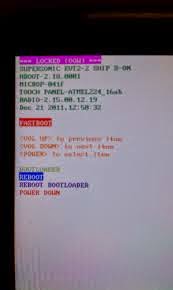COMPUTER VIRUS ATTACKS (CVA)
A computer virus is a malware program that, when executed,
replicates by inserting copies of itself (possibly modified) into other
computer programs, data files, or the boot sector of the hard drive; when this
replication succeeds, the affected areas are then said to be
"infected".
In a
layman’s term, computer virus is a program that spreads by first infecting
files or the system areas of a computer or network router’s hard drive and then
making copies of itself. Some viruses are harmless, others may damage data
files and some may destroy files. Some viruses are written to make ones
computer vulnerable for another to use or have access to files and data on it
without proper authentication by owner. Computer virus may include (Trojan
Horse, spyware, worms, time bombs, Browser Hijacker etc.)
The question is how
are Computers infected with viruses? All computer viruses are man-made. A
simple virus that can make a copy of itself over and over again is relatively
easy to produce. Computer viruses can do anything that any other program you
run on your computer can do. Some viruses are deliberately designed to damage
files, and others may just spread to other computers. Computers are infected
with viruses when the file containing the virus is executed or run (opening by
double clicking) on the victim computer. Computer viruses can be transferred
through email or by inserting copies of itself into other programs, documents
or games on the internet. Most computers in work places, schools and research
institutes are infected with viruses through removable storage media (flash
drive or pen drive, CD, DVD etc.)
Another follow up question
arises, how do I prevent or avoid, manage or remove Computer Virus?
·
Install Anti-Virus software from a reputable
vendor. Update it and use it regularly.
McAfee is the leader in internet security
and virus detection. Others may include AVG Anti-Virus, Bitdefender, NOD32,
Windows defender, Avast Internet Security etc. Most reputable Anti-Virus
software must be purchase online which seems disturbing or difficult in Africa.
·
In addition to scanning for viruses on a regular
basis, install an “on access” scanner (included in most Anti-Virus software
packages) and configure it to start each time you start your computer or insert
any removable storage media. This will protect your system by checking for
viruses each time your run an executable file.
·
Perform a virus scan before opening contain of
any inserted removable storage media.(included in most Anti-Virus software
package)
·
For online threats:
1.
Do not open an email attachment unless you were
expecting it and know whom it’s from.
2.
Do not open any unsolicited executable files,
documents, spreadsheets, etc.
3.
Avoid downloading executables or documents from
the internet, as these are often used to spread viruses.
4.
Never open files with a double file extension,
e.g. filename.txt.vbs. This is a typical sign of virus program.
5.
Do not send or forward any files that you
haven’t virus-checked first.
6.
Do not play Applet games(games that popup in
your browser when in use)
Instructions
Dwonload



















